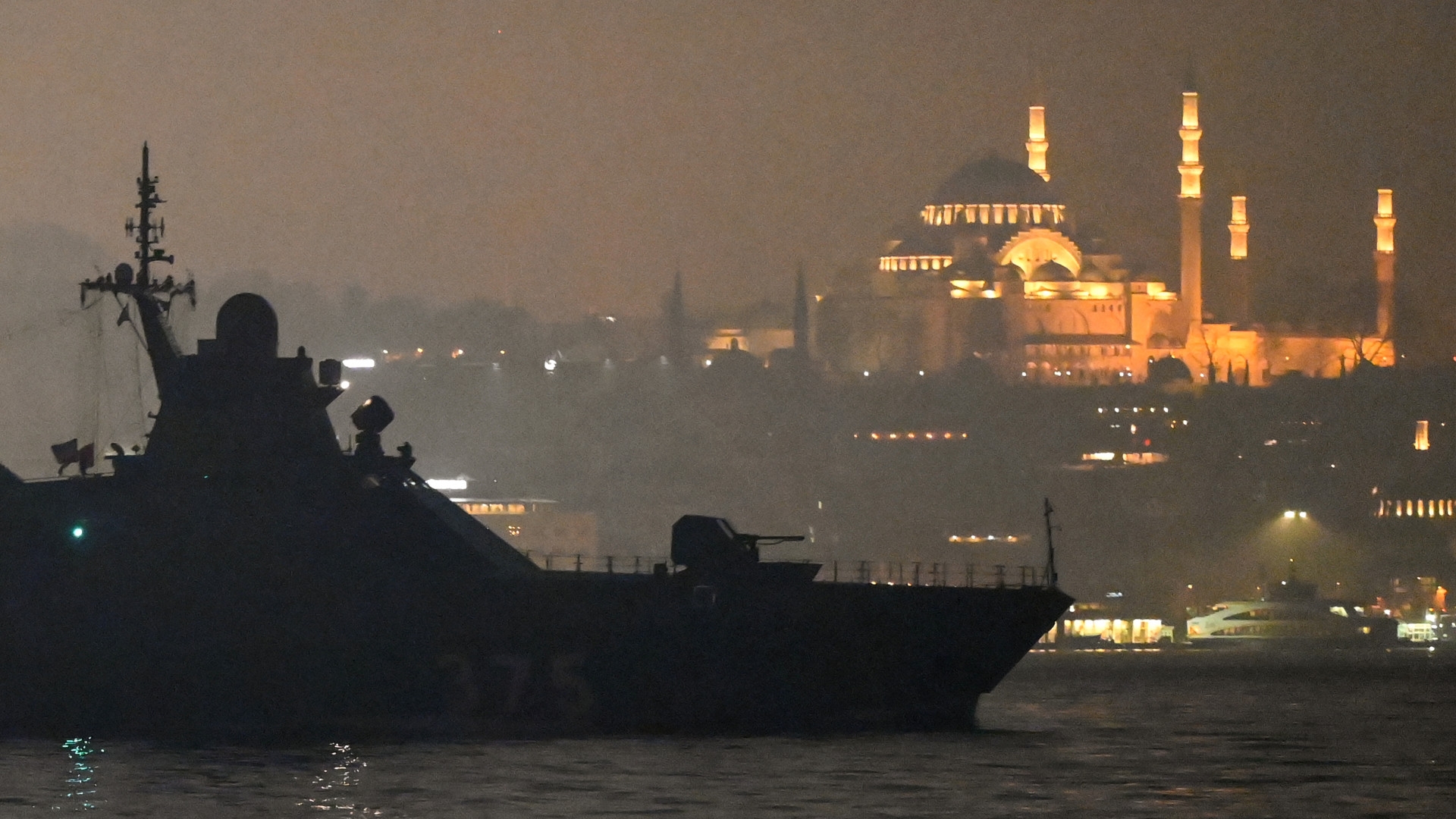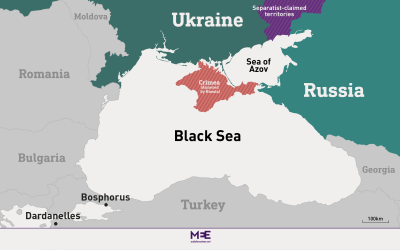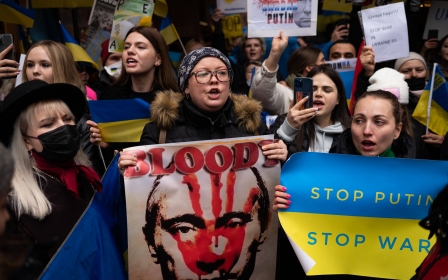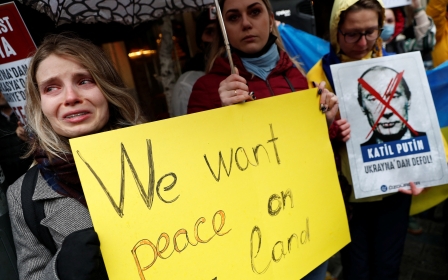Russia-Ukraine war: Turkey denies closing Black Sea to Russian warships

Turkish President Tayyip Erdogan didn't tell Ukrainian President Volodymyr Zelensky that Turkey would close the Bosphorus and Dardanelles straits to Russian warships, a senior Turkish official told Middle East Eye on Saturday.
"President Erdogan didn't promise to close the straits," the official, who is directly familiar with the call, said. "Turkey hasn't made a decision to close the straits to Russian ships yet."
The statement contradicted an earlier tweet by Zelensky, which was posted following his telephone conversation with Erdogan.
"I thank my friend Mr President of Turkey @RTErdogan and the people of Turkey for their strong support," Zelensky tweeted.
"The ban on the passage of Russian warships to the Black Sea and significant military and humanitarian support for Ukraine are extremely important today. The people of Ukraine will never forget that!" the Ukrainian leader continued.
Zelensky's tweet may have been an effort to force Ankara's hand.
Erdogan spoke to Zelensky on Saturday, offering reassurance that Ankara was making efforts for an immediate ceasefire, as well as his condolences over the loss of lives in the Russian attack, according to a Turkish presidency statement.
The statement made no mention of the Black Sea in the presidents' conversation.
Under the 1936 Montreux Convention, Turkey has control over the passage of vessels between the Mediterranean and the Black Sea, making it an essential player in the current conflict between Ukraine and Russia.
Turkish foreign minister Mevlut Cavusoglu earlier this week said that Russia would still be able to send its ships through the straits even if Turkey were to close them.
"Under Montreux Convention on straits, Russia has a right to return its ships to its ports in Black Sea," Cavusoglu said in a TV interview. "Even in the wartime, Russia has a right to do it."
Middle East Eye propose une couverture et une analyse indépendantes et incomparables du Moyen-Orient, de l’Afrique du Nord et d’autres régions du monde. Pour en savoir plus sur la reprise de ce contenu et les frais qui s’appliquent, veuillez remplir ce formulaire [en anglais]. Pour en savoir plus sur MEE, cliquez ici [en anglais].





